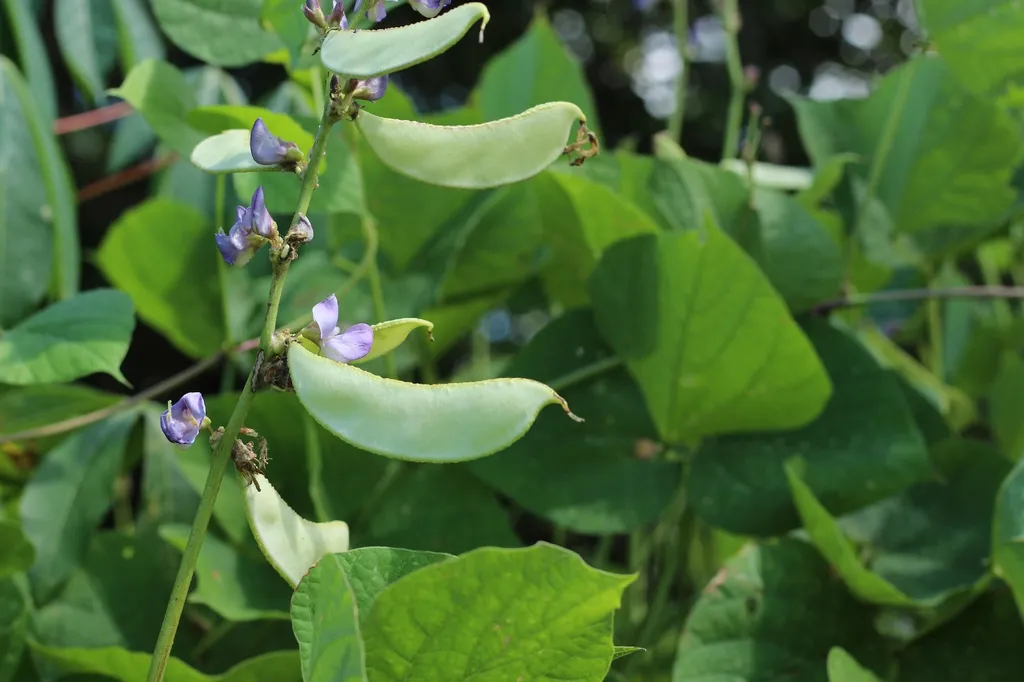In the heart of agricultural innovation lies a humble yet mighty crop, Dolichos lablab, also known as Lablab purpureus, which is making waves in the agritech world. A recent comprehensive review published in *Discover Food* has shed light on the multifaceted potential of this crop, ranging from its nutritional and medicinal properties to its significant role in sustainable agriculture.
Dolichos lablab is a powerhouse of nutrients, boasting up to 28% protein content, along with substantial amounts of iron and zinc in its dried leaves. “This crop is a nutritional goldmine,” says Snigdha Chetia, lead author of the study and a researcher at the Department of Food Engineering and Technology, Tezpur University. Its medicinal properties are equally impressive, with studies indicating antioxidant, antidiabetic, anti-inflammatory, and even analgesic effects. These properties make it a promising candidate for combating oxidative stress and enzyme-related disorders, offering a natural alternative to synthetic medicines.
From a commercial agriculture perspective, Dolichos lablab is a game-changer. As a cover crop, it enhances soil fertility by supplying essential nutrients like organic carbon, nitrogen, phosphorus, and calcium. This not only improves soil health but also contributes to sustainable farming practices, reducing the need for chemical fertilizers. “The potential of Dolichos lablab to improve soil health and fertility is immense,” Chetia notes. “It’s a crop that gives back to the land, making it a valuable asset for farmers.”
The crop’s versatility extends to its genetic diversity and breeding potential. With a high coefficient of variation in traits like pod width, primary branches per plant, and fresh pod yield, Dolichos lablab offers ample room for genetic improvement. This genetic diversity is a boon for breeders aiming to develop high-yielding, disease-resistant varieties, thereby increasing the crop’s commercial viability.
Moreover, the presence of specific lectins in Dolichos lablab, such as Gal/GalNAc lectin, opens up new avenues in fields like stem cell preservation and enzyme technology. These lectins, with their sugar specificity, hold promise for innovative applications in bioprocessing and medical research.
The review also highlights the crop’s potential in addressing bone disorders. Dolichos beans have been found to inhibit bone density loss and promote bone union, making them a valuable addition to osteoporosis management strategies. This finding could pave the way for new nutritional interventions in healthcare, further expanding the crop’s market potential.
In conclusion, Dolichos lablab is more than just a crop; it’s a multifunctional resource with immense potential to revolutionize agriculture, nutrition, and medicine. As research continues to unravel its benefits, the future of Dolichos lablab looks brighter than ever. With its ability to improve soil health, combat diseases, and contribute to sustainable farming practices, this humble crop is poised to make a significant impact on the global agricultural landscape.

